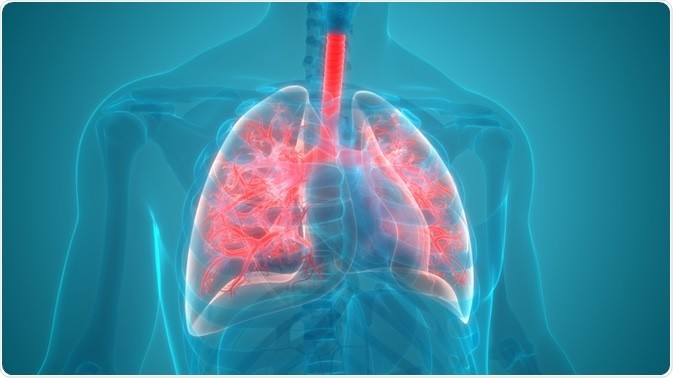Pneumonia - Causes, Prevention and Treatment

What Is Pneumonia?
Pneumonia is an infection of the lungs that can be
caused by a virus or bacteria. It is a condition in which there is fluid in the
lungs. Pneumonia may lead to breathing problems and low blood oxygen levels if
it gets worse.
To diagnose pneumonia, a doctor will take a chest x-ray
and listen to your chest with a stethoscope.
The doctor may also order CT scans or lab tests of your
blood, urine, or sputum sample. In some cases, pneumonia can cause serious
complications such as aspiration pneumonia which happens when food enters
through the windpipe into the lungs where it leads to infections that affect
other organs like the brain and stomach.
Pneumonia is a common infection and it is most often
caused by a virus. However, it can be caused by bacteria like Legionella,
Mycoplasma, and Pseudomonas. Usually, pneumonia does not cause any specific
symptoms but in some cases, it causes fever, cough, shortness of breath, or
chest pain.
A vaccine called pneumococcal conjugate vaccine (PCV13)
protects you from the types of bacteria that can cause pneumonia.
Every year in the United States about 750,000 people
get sick with pneumonia and about 200,000 people get hospitalized because of
this illness. About 1 in 20 people who get pneumonia will need to be
hospitalized.
Most people with pneumonia do not need treatment in the
hospital, but people with children or elderly patients fall into this category
of high-risk patients. It is important to take steps to prevent infections like
pneumonia because it can be serious and even deadly if left untreated.
Pneumonia is most common in the winter months when cold
viruses are flying around, but it can also happen at other times of the year.
Pneumonia is contagious, so it can easily spread from
person to person. You can protect yourself from getting it by washing your
hands frequently and covering your mouth and nose with a tissue when you sneeze
or cough.
How Is Pneumonia Treated?
Pneumonia is treated by taking antibiotics that will
treat the infection. This will cure the infection and prevent it from spreading
into other organs like the brain and stomach which can cause severe
complications and even death. Some patients may require hospitalization if they
are too sick. Others may recover at home with rest and plenty of fluids.
Treating pneumonia in the hospital is important because
it prevents further complications from occurring. You may be given oxygen to
help you breathe if you are having trouble breathing. You may also need to stay
in the intensive care unit (ICU) for a while if your condition becomes very
serious.
Some patients recover without any complications.
However, when pneumonia is not treated properly, it can cause severe damage to
the lungs and other organs like the brain and stomach. This can cause permanent
disabilities or even death if it is not treated immediately.
How You Can Prevent Pneumonia?
Colds are common in young children, older adults, and
other people with a chronic conditions. If there is a child or elderly person
in your house that has a cold, it is important to wash your hands frequently so
you don't spread it to others.
You also need to cover your mouth and nose when you
cough or sneeze. Most of the time people recover from pneumonia without too
much difficulty unless they have severe complications because they were not
diagnosed right away. The best way to avoid getting pneumonia is by getting
vaccinated.
Frequently Asked Questions on Pneumonia
What Is The Difference Between Pneumonia And Bronchitis?
Bronchitis is an inflammation of the lining of your lungs
(bronchus) while pneumonia is an infection of the lungs.
Bronchitis can be caused by viruses, bacteria, or other
pathogens. If you have bronchitis, it will cause fever, coughing, and shortness
of breath.
Usually, you do not need to go to the hospital but
there are some cases when it can become serious or even deadly. Bronchitis
should be treated before pneumonia because it will get worse if untreated.
What Is The Difference Between Pneumonia And Tuberculosis?
Tuberculosis is a bacterial infection in which the
bacteria enters your lungs. Tuberculosis can be treated with antibiotics in
some cases, but it can sometimes lead to hearing loss, kidney failure, or
death.
Pneumonia is caused by viruses or bacteria. It causes
fever, shortness of breath, cough, or chest pains. If you are experiencing any
of these symptoms you should see a doctor right away because it will get worse
if not treated properly.
A vaccine is available to protect against getting
pneumonia. The vaccine is especially important for people who are at high risk
for getting pneumonia because they are more likely to experience serious
complications if they become infected with it.
